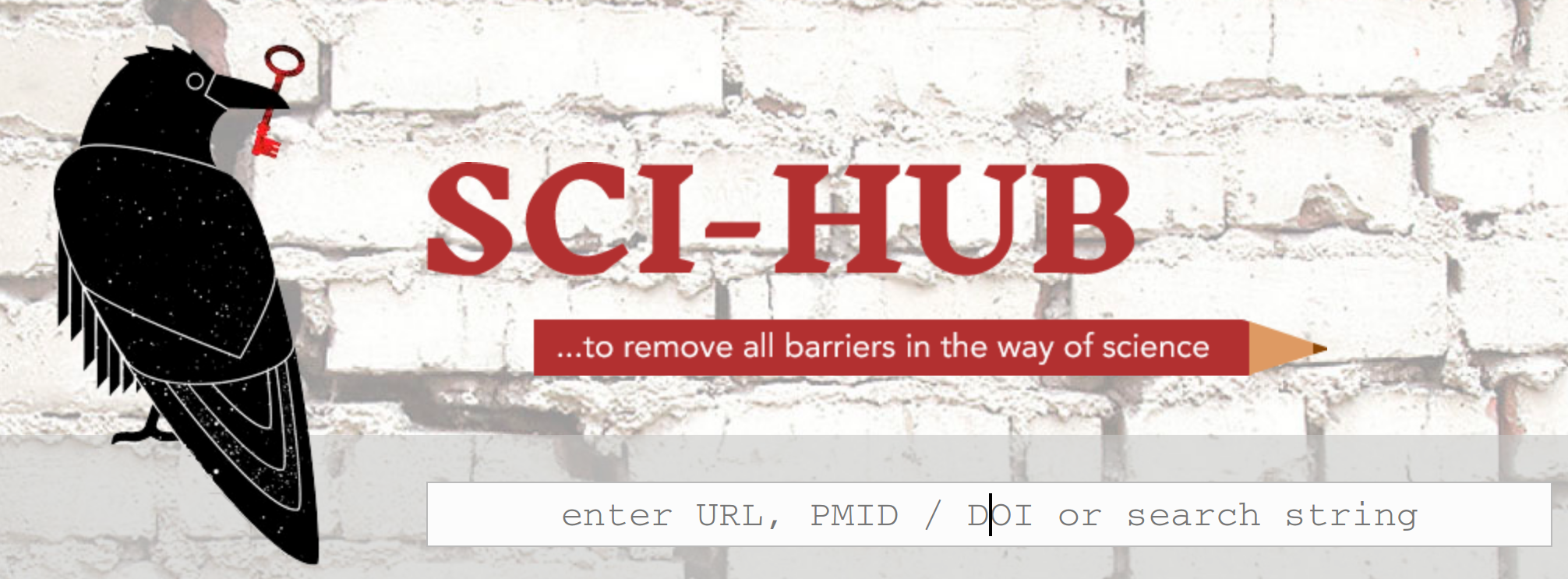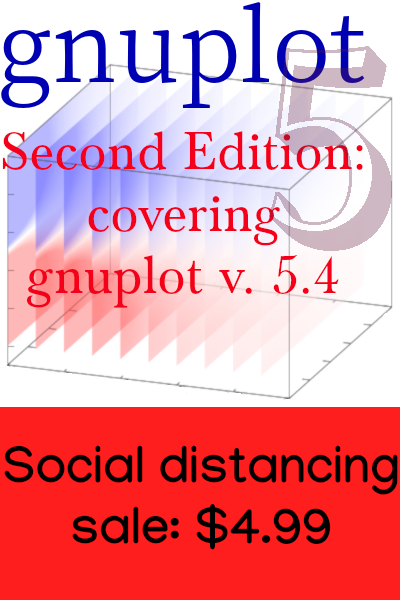Free Access to Scientific Articles
28JAN2023: URL formatting; added note about using regular Google.
One of the main difficulties facing the independent researcher is access to the scholarly literature. I will focus here on access to scientific publications, because most of my experience lies there, but much of this should apply to papers in any field of research.
If you are part of a university, government laboratory, or another well-funded institution that has invested the shocking sums required for access to a large array of journals, you can either log in or, sometimes, simply use your library’s wifi to get instant, free access to old and current issues of most of the scholarly journals that you will need to carry out your research. Some of these will even be on the shelves, for you old-fashioned types who enjoy the smell of paper and binding glue. However, if you are an independent scholar or researcher, things are not so simple. You will find that many scientific publishers expect you to pay them a fee for each article that you want to read beyond the abstract, and, sometimes, the list of references. A typical fee is around US$30. As even a cursory literature search can involve looking over 20 or 30 articles, this expense is beyond the reach of most independent researchers. My aim in this article is to show you some ways to get access to the literature without paying these prohibitive fees.
Free Journals
An increasing number of online journals, including some leading outlets, are free to read. One of the vanguard open-access journals was PLOS Biology, which has become a prestigious platform for biologists to publish their research. Unfortunately, the open-access movement has become infected with many “predatory journals” that exist simply to dupe naive or desperate authors into paying fees to have their articles published; so look into the reputation of any journal that you are not familiar with before referencing one of its articles.
Google Scholar (and Plain Google)
One of your first attempts to secure a free copy of the article that has attracted your interest should be to find it in Google Scholar.

Google lists one or more free versions that it knows about on the right-hand side, as shown in the figure. You can sometimes find others by following the “All xx versions” link.
If that doesn’t work try regular Google, or another search engine, with the article title as an exact phrase (place it within double quotes for Google). I’ve found article PDFs this way, on the author’s university web page, that were not mentioned in Scholar.
Internet Archive Scholar
Internet Archive Scholar arrived in December of 2022. It “includes over 25 million research articles and other scholarly documents preserved in the Internet Archive. The collection spans from digitized copies of eighteenth century journals through the latest Open Access conference proceedings and pre-prints crawled from the World Wide Web.”
Preprint Servers
Several disciplines have established organizations that operate repositories of preprints, that are free to read. One of the earliest was arXiv.org, run by Cornell University, that now carries preprints in physics, mathematics, computer science, and several other fields. (“Submissions to arXiv should conform to Cornell University academic standards.”) Preprints are pre-publication versions of articles contributed by the authors directly to the repository. These are articles that have passed peer review and are scheduled to appear in a scientific journal. They are usually identical, or nearly so, in content with the published version, but usually not in formatting. The advantage in using preprint servers is not only that the content is free, but that it is available often months before the officially published version.
Some of the articles in arXiv.org and other preprint servers are published only there, and not submitted to traditional journals at all. In some cases this is because the authors have become disenchanted with the traditional publishing process. You should not overlook this type of material, as some very important work has appeared through this avenue.
Ask the Author
Before scientific publications were distributed as PDFs, we would simply ask the authors if they could send (mail) us a reprint, or, if we knew about the paper before it appeared, a preprint. Some researchers kept (and keep) distribution lists of people who they had reason to believe would want to keep informed about their work, and send things out to the list when they were ready. We still do this, but we email each other PDFs rather than paper versions. If you can find an email address for any of the authors, and there is no free version on Google Scholar, this is a good approach. Even if you can’t get an email address, you can sometimes find your author on Twitter. Some nice side effects are that the author will enjoy learning of the interest in his or her work, and you may make a new scientific acquaintance.
Interlibrary Loan
Your local public library may have powers of which you are unaware. Check out their interlibrary loan service. For no fee, or a token amount, many county libraries will request a copy of an article from a big university library for anyone with a library card. If you can wait a few days to a few weeks, this can do the trick.
Some journal publishers permit free access for readers using the internet connection provided by certain public libraries. Also, many public libraries subscribe to various commercial information databases, providing free access to cardholders.
Be a Guest Researcher
You may be able to talk a local university into allowing you access even if you are not a student or professor there. You may even be able to just walk in and use the library, including the wifi, and the access that comes with it. However, journal access usually requires credentials. If you know a student or staff member, you may be able to borrow a login to get journal access.
Public Research Libraries
If you live in New York City, you can find almost anything in the main public library. In Washington, DC, the Library of Congress has it all. The process, however, is a bit time-consuming.
Some museums and other institutions have associated libraries. Find out what public resources your city provides.
You can use the hashtag #icanhazpdf to request PDFs of articles from anyone who might have one on hand. Of course, you can also monitor this hashtag to provide PDFs from your collection.
http://www.reddit.com/r/scholar is a subreddit where you can request reprints. It’s not as active as the Twitter hashtag, but it might be worth a try if the former fails to yield results.
Browser Extensions
Unpaywall, Open Access Button, and PaperPanda add widgets to your web browser that let you find free versions of scholarly articles. I haven’t tried these, but some people may find them convenient.
Sci-Hub

If you need instant access, and Google failed you, and the author is not responding, and there is no preprint, you may decide to resort to Sci-Hub. This is a website that contains millions of scientific articles free for you to download. Before using it, however, you should be aware of the ethical and legal implications. Some of the content on Sci-Hub is distributed in violation of the publishers’ copyrights. The ethics of using Sci-Hub, however, are very different from, for example, acquiring music from illegal sources. In the latter case, you are cheating the creators out of remuneration for their work, and contributing to an environment where it is increasingly difficult for musicians to earn a living from their creativity (not that this was ever easy). Authors of scientific papers, however, receive no payment for their publications. I have yet to hear from any scientist who objects to Sci-Hub; in fact, most are in favor of any mechanism that facilitates access to their publications. This does not apply to books, however: authors are paid royalties, usually, for books, including scientific and technical volumes. Even if their deal involves a fee and no royalties, the chance for the author to earn income from subsequent editions or other books strongly depends on the sales performance of existing books—and illegally downloaded copies do not appear in sales figures. If you use a source for an electronic version of a book that is outside legitimate channels, you are probably stealing from a fellow scholar and author who has expended years of work to create it.
Because of legal action by journal publishers, the internet location of the Sci-Hub servers changes frequently. Check this service for the current location. At the moment of writing, Sci-Hub can be found at https://sci.hubg.org/ and https://sci.hubbza.co.za/.
Thank You
I hope you find this information useful. If you know of anything that would be helpful to independent researchers seeking free access to the literature, please let me know about it so that I can include it here.
Further Reading
Here are some related articles with more hints:


